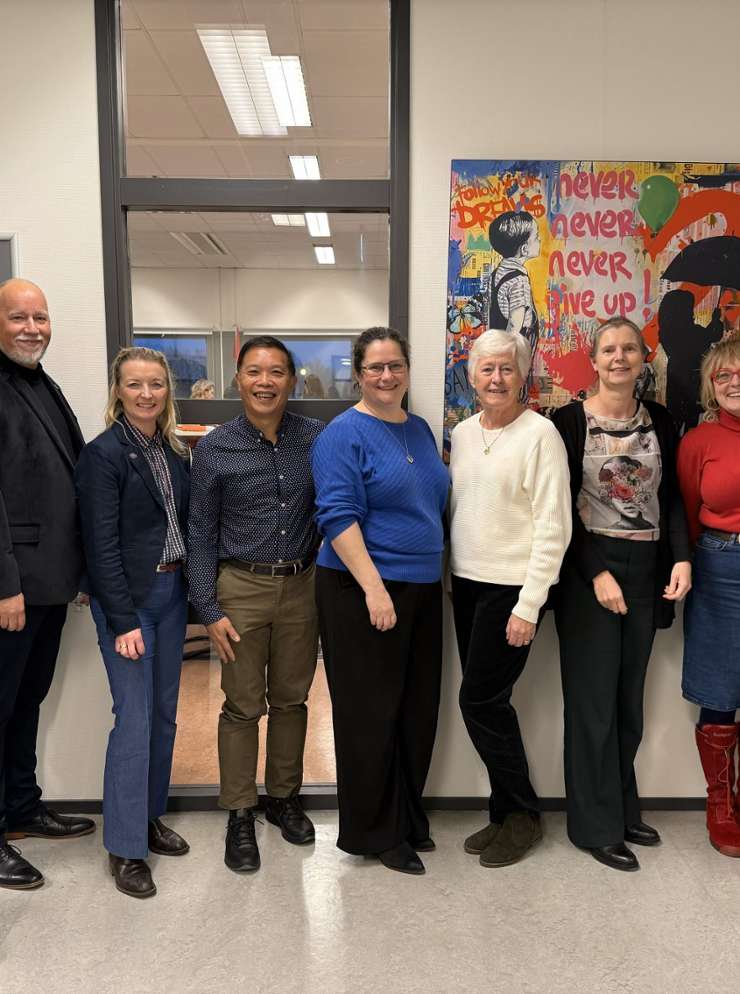European Master of Science in Occupational Therapy
master's, part-time, 2 years
About this programme
This Master’s programme helps you improve your research skills and critical thinking in Occupational Therapy and Occupational Science. You will study together with students from different countries and languages, who bring experience from education, research, and practice. As a graduate, you will gain an international view and learn to use evidence-based methods to solve problems and improve care through research projects.
Stories
Programme structure
The OT-EuroMaster offers modern and innovative education in 6 modules across 5 universities in 5 countries. In the first year, you will travel to Brighton (England), Amsterdam (the Netherlands), Winterthur (Switzerland) and A Coruña (Spain). Each stay lasts 2 weeks. In the second year, you will go to Stockholm (Sweden) for 1 week and then complete your degree from your home country.
- Year 1: modules 1 and 2
In module 1, you will visit the United Kingdom for 2 weeks of classwork and explore the concepts of Occupational Science and how these form a foundation for Occupational Therapy practice.
In module 2, you will go to the Netherlands for classwork and learn about qualitative research methods that capture subjective dimensions, such as the lived experiences and meanings of human occupation and participation.- Year 1: modules 3 and 4
In module 3, you will visit Switzerland for classwork and study quantitative research methods used to evaluate and enhance occupational performance and participation.
In module 4, you will travel to Spain for classwork and explore the socio-cultural perspectives of human occupation.- Year 2: modules 5 and 6
Module 5 takes place in Sweden and focuses on planning a research project within the body of knowledge of the OT discipline.
Module 6 will be completed in your home country and involves conducting a research project within the OT discipline, with online supervision.
Admission
BSc and English skills
You can apply if you have a Bachelor of Science degree in Occupational Therapy and strong written and spoken English skills at an academic level. A formal English test score (for example, IELTS Academic) may be required. If you hold an Occupational Therapy qualification below BSc level, additional admission requirements will apply.
Study load
28 - 40 hrs per week
The study load is 28 hours per week while studying at home and 40 hours per week during classwork at the partner universities. The total study load is 2,520 hours, leading to 90 ECTS credits. This is a 2-year, part-time postgraduate programme. Many students work alongside their studies, usually between 50% and 70% (2.5 to 3.5 days per week).
Tuition
Tuition fees and expenses
In addition to the annually determined tuition fees, you should also take into account housing, travel and living costs.
Why the Master of Science in Occupational Therapy?

- Strengthen your 'occupational lens', while discovering Occupational Therapy and Occupational Science from a cross-cultural point of view.
- Grow personally, professionally and as a researcher.
- Be part of a learning community with internationally renowned lecturers and like-minded professionals.
- Follow high-quality education at the 5 participating universities, some of which are ranked at the top of Europe.
- Get the opportunity to visit several exciting European cities.
For whom?

- You are interested in international perspectives on Occupational Science and Occupational Therapy.
- You want to further develop your research skills.
- You want to know more about evaluating and innovating current practice.
- You are looking for new career perspectives both in your home country and abroad.




